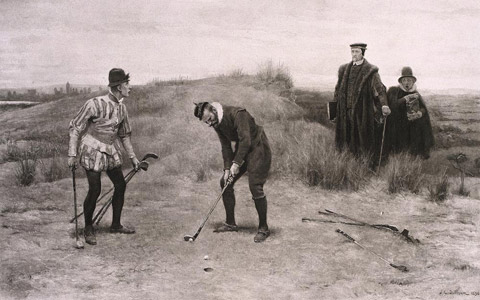Good now, sit down, and tell me, he that knows,
Why this same strict and most observant watch
So nightly toils the subject of the land,
And why such daily cast of brazen cannon,
And foreign mart for implements of war;
Why such impress of shipwrights, whose sore task
Does not divide the Sunday from the week;
What might be toward, that this sweaty haste
Doth make the night joint-labourer with the day:
Who is’t that can inform me?
–Marcellus, in Shakespeare’s Hamlet
Human beings, with our diversity of gifts, talents, and dispositions, were created to, as Adam Smith put it, “truck, barter, and exchange.” In other words, we were made to trade.
But we were not created to be constantly trucking, bartering, and exchanging. That’s the central truth about humanity that the commandment concerning Sabbath rest communicates:
Remember the Sabbath day by keeping it holy. Six days you shall labor and do all your work, but the seventh day is a sabbath to the Lord your God. On it you shall not do any work, neither you, nor your son or daughter, nor your male or female servant, nor your animals, nor any foreigner residing in your towns. For in six days the Lord made the heavens and the earth, the sea, and all that is in them, but he rested on the seventh day. Therefore the Lord blessed the Sabbath day and made it holy.
Over at The Gospel Coalition today, I expand on the news of Amazon’s new delivery service on Sundays to discuss “Sabbath Rest and the Moral Limits of Consumption.”
Just as we sleep each night to give our bodies rest from daily labors, our souls (as well as our bodies) need rest from mundane and worldly activities. This is the kind of rest that the Sabbath is designed to provide. The Sabbath principle calls us to rest from the gratification of our earthly desires, whether they be morally permissible or not, and whether we consider them to be work or leisure.
Now even though Sunday is not technically the Sabbath, there remains a need for a regular time and place for worship, fellowship, and communion. We still need rest from our daily work and worries. This is in part why I see the expansion of market activity to fill all available time, 24/7/365, as troubling. We are not called to simply spend as much as we can as often and as quickly as possible. Thus the principle of Sabbath rest, I would argue, might even have something to say about holidays as well as holy days, Thanksgiving and Christmas as well as every Sunday.
Despite these concerns, I am not a legalist with respect to the Sabbath and the strictness of its observation. In large part I simply want Christians to be more aware of what their consumption patterns mean for others. A variety of Christian traditions have worked out the specifics of what Sabbath observance demands in distinctive ways. Within the broad strokes of the Sabbath requirement, that also means there is space for individual Christians to observe the Sabbath in ways that are meaningful within their particular contexts and callings.
 Some Christians refuse to work on Sundays, whether for pay or not. Others will not patronize restaurants or other retail establishments. In some traditions, such normal activities as cutting the grass, playing sports, or even watching TV are forbidden. There are even some Christian websites that are inaccessible on Sundays, while other businesses remain closed on the first day of the week explicitly out of religious convictions. But as I conclude over at TGC, “amid diverse expressions of faithfulness to the Sabbath-keeping mandate, the principle of the commandment still persists and still governs the morality of human activity.”
Some Christians refuse to work on Sundays, whether for pay or not. Others will not patronize restaurants or other retail establishments. In some traditions, such normal activities as cutting the grass, playing sports, or even watching TV are forbidden. There are even some Christian websites that are inaccessible on Sundays, while other businesses remain closed on the first day of the week explicitly out of religious convictions. But as I conclude over at TGC, “amid diverse expressions of faithfulness to the Sabbath-keeping mandate, the principle of the commandment still persists and still governs the morality of human activity.”
Now many who decry increasing worldliness will blame the businesses who open on Thanksgiving morning, or who decide to open on Sundays. And although there is certainly a dynamic relationship between the providers of goods and services and the consumers of them, it must be acknowledged that retailers do face real dilemmas, even if they are to some extent of their own making. And in the end, the lion’s share of the blame lies with the consumers. It lies with those of us who have lined up on Thanksgiving for early Friday sales. It lies with those of us who cannot wait to get our shipments from Internet retailers until Monday.
The market is designed to provide us with what we desire, and market actors will generally respond to the signals provided by the customers. So it is high time to think more deeply about what our consumption choices communicate in terms of expectations of others. The principle of instant gratification is no way for a sustainable, civilized, or ethical economic system to exist, and as we continue to run up against and transgress the moral limits of market activity, we will reap the dysfunction in our economic system and broader society that we have sown.
As Nicole Gelinas puts it, “It’s shoppers, not the government, who should force stores to close.”
Think about this before you line up to shop at Kmart tomorrow morning.
